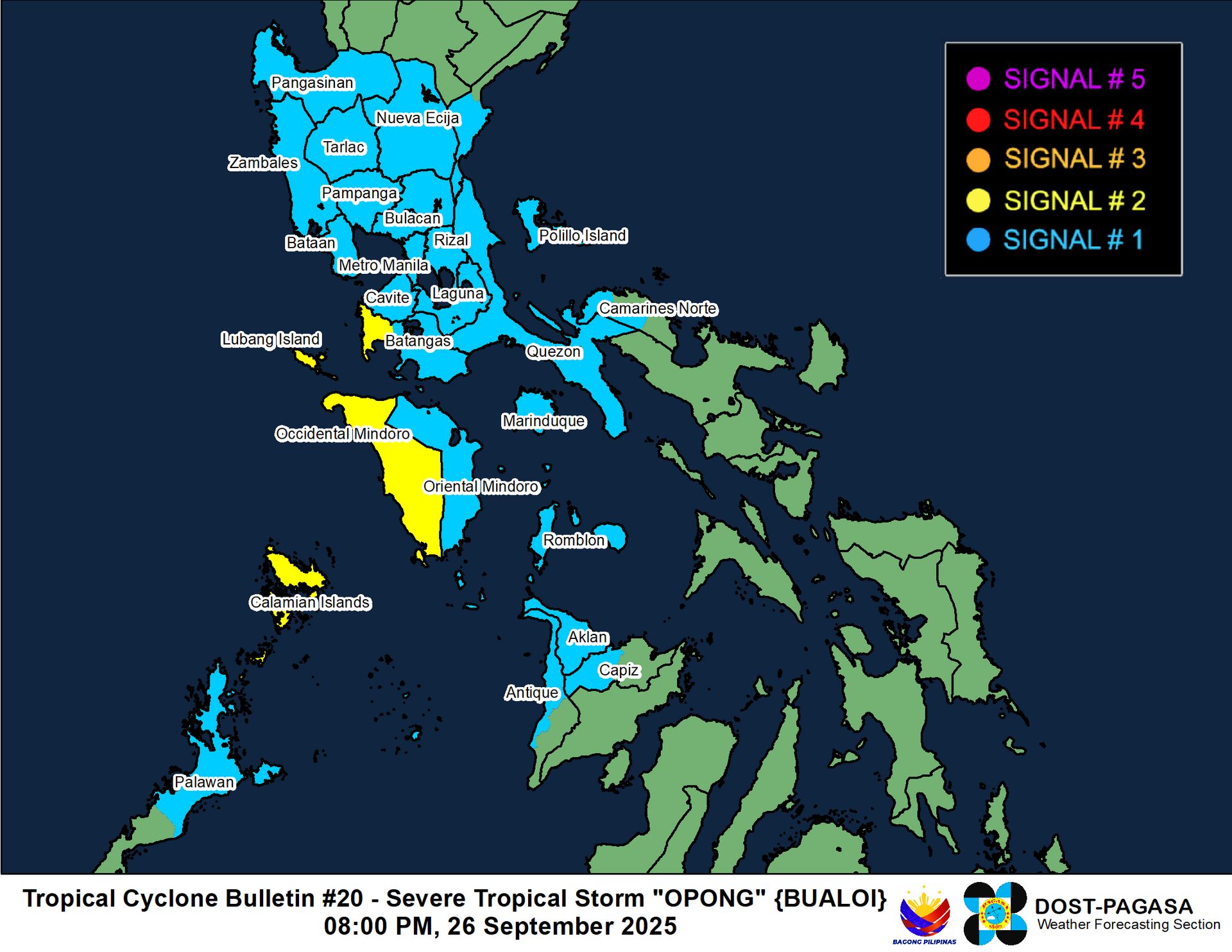- Will Weaver's Weather & Pacific Typhoon Center
- Posts
- Severe Tropical Storm Bualoi (26W/Opong) – Tropical Cyclone Advisory #7: 1200 UTC 26 September 2025
Severe Tropical Storm Bualoi (26W/Opong) – Tropical Cyclone Advisory #7: 1200 UTC 26 September 2025
Bualoi quickly moving away from the Philippines and forecast to become a typhoon later tonight.
…Bualoi quickly moving away from the Philippines and forecast to become a typhoon later tonight…

Himawari-9 infrared satellite image (Weathernerds)
Current storm information:
Position: 12.9°N 119.8°E
Movement: W at 16 knots (30 km/h)
Intensity: 60 knots (110 km/h)
Central pressure: 990 hPa
Trend:
Some strengthening is forecast during the next 24 hours and Bualoi could become a typhoon late tonight or on Saturday.
Watches and warnings:
| Hazards affecting land:
|
Discussion:
Bualoi is now located over the South China Sea, and it is not very well organized after passing over Mindoro several hours ago. The tropical storm consists of two large and relatively formless blobs of intense convection rotating around a somewhat elongated and not well defined surface circulation center. The convection still lacks discrete banding features, and its poleward outflow channel has become somewhat restricted due to strong easterly flow associated with a deep-layer ridge situated to the north. Despite its disorganized appearance, scatterometer data indicates that Bualoi is still producing winds of 55 to 60 kts, and Dvorak fixes range from T3.5 to T4.5, although the automated CIMSS ADT and D-PRINT estimates are around the 55 kt range. Taking a blend of all these data, the intensity remains 60 kts.
Only minor changes to the forecast are necessary since there is fairly strong agreement among the model guidance, and the only adjustment was a shift to the south during the latter portion of the forecast. Bualoi should move fairly briskly west-northwestward across the South China Sea steered by the aforementioned ridge. It is gradually moving into a more favorable environment with low shear and warm SSTs, and strengthening appears likely. Bualoi should become a typhoon later tonight or tomorrow, and it could approach Category 2 strength before making landfall in northern Vietnam on Sunday evening. It should be noted that CIMSS AI-RI and RAMMB RIPA rapid intensification guidance suggests a modest chance of rapid intensification, so it is possible Bualoi could become stronger than currently indicated before landfall. After landfall, Bualoi should rapidly weaken as it quickly pushes inland over Vietnam, Laos, and Thailand, and it should degenerate into a trough of low pressure by Monday evening.
Forecast positions and maximum winds
000 hrs: 12.9°N 119.8°E – 60 kts
012 hrs: 14.2°N 115.6°E – 70 kts
024 hrs: 15.0°N 112.2°E – 80 kts
048 hrs: 17.1°N 107.3°E – 85 kts
072 hrs: 19.9°N 102.3°E – 25 kts inland
096 hrs: Dissipated

JTWC forecast map
